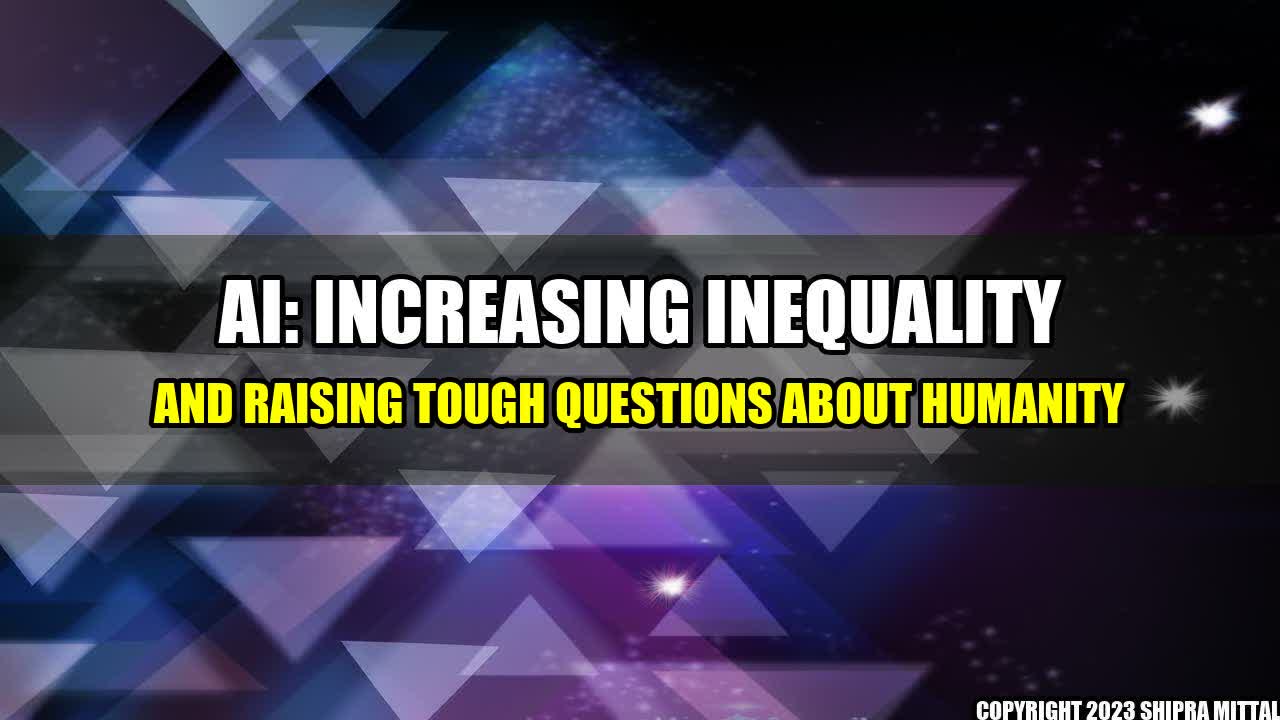Once upon a time, there was a small town where people used to farm for their livelihood. One day, a new technology arrived in the town which made farming easier and efficient. The technology was AI - Artificial Intelligence.
The farmers were delighted by the new technology as it increased their productivity, but some of them could not afford to buy it. As a result, the rich farmers became richer, and the poor farmers were left behind. This small town is not the only place where this has happened. The impact of AI on inequality is a global concern.
Examples
There are various examples that demonstrate the impact of AI on inequality:
- AI-powered hiring tools may perpetuate bias against marginalized groups.
- AI-powered chatbots might only respond to people who speak a particular language or dialect.
- AI has the potential to replace jobs, which could lead to unemployment and income inequality.
- AI-powered trading algorithms can replace human judgment, favoring wealthy investors who can afford the technology.
- AI-powered healthcare may exacerbate disparities as those who can afford it will receive better treatment.
Conclusion
In conclusion, AI is transforming the world, but it also has its drawbacks. Here are three main takeaways:
- AI has the potential to increase inequality, especially if those who cannot afford the technology get left behind.
- AI raises tough questions about what it means to be human; for example, what happens when machines can do things better than humans?
- AI's impact on society is not predetermined; we must take action to ensure that AI benefits humanity as a whole, rather than just a select few.

Akash Mittal Tech Article
Share on Twitter Share on LinkedIn